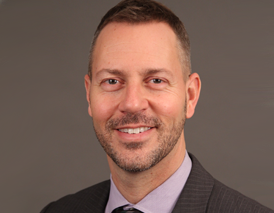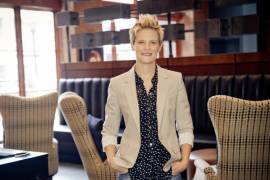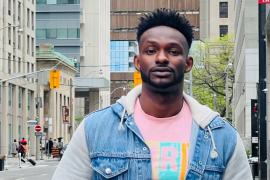
How Child Advocates and Judges Can Help Keep LGBTQ Youth Safe from Violence in Out-of-Home Care
Blog Search
This blog originally appeared on the National Association of Counsel for Children (NACC)'s website.
The blog post featured on the National Council of Juvenile and Family Court Judges’ website last week entitled “System Barriers Facing Teen Dating Violence Survivors,” by the Northwest Network of LGBT Survivors of Abuse, highlighted important concerns around mandatory reporting of teen interpersonal violence and the experience of Lesbian, Gay, Bisexual, Transgender, and Questioning (LGBTQ) survivors. Given my work as a civil rights lawyer for LGBTQ youth in out-of-home care, one of the author’s conclusions really hit home – that LGBTQ youth are hesitant to report being victims of violence out of fear that government actors receiving reports or providing subsequent services would be unsupportive or actively harmful to them. Sadly, the prospect of being re-victimized by the very people who could and should come to your aid is an all too valid concern for LGB youth, and even more so for transgender youth generally, transgender youth of color in particular, and undocumented youth.
That reality is even more jarring when we know an epidemic of violence against transgender women continues in our country with homicide rates at all-time highs. Simultaneously, in states across the country, proponents of damaging and misguided bills seek to prohibit transgender people, including transgender students, from using facilities in accord with their gender identity. They feed the public misleading and hateful messages that transgender youth and adults are potential perpetrators of violence when they are, in fact, the ones at risk of victimization.
What does this disturbing research and news mean for advocates for children in child welfare and juvenile justice cases and for judicial officers hearing those cases? What can we do? We can take concrete action to help ensure the safety of LGBTQ youth in care. In fact, as zealous advocates and those responsible for the best interests and rehabilitation of children, we are ethically obligated to do so. If we do not, we are complicit in the further victimization of youth in care; youth who are wards of the state and thus entitled to protection from harm under the Constitution. As child advocates, we cannot stand silent as members of our community promote legislation that is harmful to children.
Advocates and judges working in juvenile court should be especially concerned as they work with so many LGBT identified or questioning youth. LGBTQ youth are overrepresented in out-of-home care systems compared to their non-LGBTQ peers. By some estimates LGBTQ youth make up 15 to 20 percent of youth in child welfare and juvenile justice systems and almost 40 percent of youth experiencing homelessness. The vast majority of these youth are youth of color and thus may face discrimination based on multiple aspects of their identity. LGBTQ youth experience higher levels of personal violence across the spectrum – at home, in placements, at school, and in their communities.
A 2014 report by the Urban Institute revealed that LGB youth were more likely than their heterosexual counterparts to experience physical, psychological, and cyber abuse by a romantic partner. They’re also more likely to experience sexual coercion. The same study found that transgender respondents reported the highest levels of victimization among youth profiled. In one national study of transgender people, 19% of respondents reported experiencing domestic violence by a family member because of their gender identity or expression. The 2013 GLSEN National School Climate Survey revealed that during the prior year, 16.5% of LGBT student respondents reported being physically assaulted because of their sexual orientation, and 11.4% were assaulted because of their gender expression. 56.7% of LGBT students who were harassed or assaulted in school did not report the incident to school staff, most commonly because they doubted that staff would intervene effectively.
LGBTQ youth also experience higher rates of victimization in placement. Lambda Legal’s report with the Child Welfare League of America regarding the experiences of LGBT youth in care highlighted that LGBTQ youth may even be blamed for experiencing violence because they are LGBTQ. In the words of one youth participant, “I got jumped by a bunch of guys in my group home, and when I told the Director he said, ‘Well, if you weren’t a faggot, they wouldn’t beat you up.’” Transgender and gender nonconforming youth in short-term detention and long-term facilities are particularly susceptible to violence at the hands of staff and peers.
Many, but not enough, jurisdictions are working to improve safety in out-of-home care systems by implementing LGBTQ-affirming policy, requiring mandatory LGBTQ-focused competency training for all staff and contractors, complying with the Prison Rape Elimination Act mandates, and implementing recommended practices endorsed by The Child Welfare League of America and others. The more affirming professionals and care providers become, the more likely youth will feel safe to share information about their identity and, importantly, if they are being harmed by someone.
In the meantime, it is incumbent upon advocates and judges to proactively ask all youth, not just those perceived to be LGBT, about their experiences around violence in all aspects of their lives. While most advocates likely do ask questions about experiences in placements, we must go broader and deeper by asking about violence in relationships, with family, at school, and in the community – and use inclusive language: Are you ever treated differently because of the way you dress? Do you get in trouble at school for the way you express yourself? How are your interactions with school safety officers? Has staff at your group home ever called you demeaning names? Have you been bullied by other kids at school? Why do you think you get bullied? Would you describe yourself as masculine or feminine or in some other way? Does anyone at home ever say or do hurtful things to you because of the way you express yourself? How safe is it for you traveling between your school and your therapy appointment? Are you in a relationship with someone? Do you feel it’s healthy?
These are but a few examples of questions we can and should ask as we work hard to earn the trust of our clients and wards of the court while also working to build affirming systems. LGBTQ youth face worse outcomes than their non-LGBTQ peers in care. If they are being victimized while in care, they can’t possibility be on a path to rehabilitation or well-being and permanency, and we aren’t doing our jobs. We can’t begin to address violence and victimization if we don’t know it’s happening.
If you are working with an LGBTQ young person who is experiencing mistreatment or discrimination in care, please contact me at ccook@lambdalegal.org.




